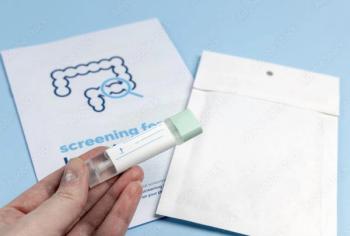
Your daily dose of the clinical news you may have missed.

Plasma Biomarkers Achieve High Accuracy for Confirmatory Aβ Positivity in Eligibility Test for DMT in Alzheimer Disease

Your daily dose of the clinical news you may have missed.

Based on the PREVENT algorithm's estimates of 10-year ASCVD risk, 4.2 million adults may need to be reevaluated for aspirin discontinuation, authors reported.

From dense breast notification laws to changing lung and cervical screening criteria, experts share practical strategies to help navigate today’s evolving cancer prevention landscape.

Barriers to increasing guideline-recommended CRC screening rates are slow to fall, but ongong focused counseling and advocacy in primary care will support the progress.

William Grady, MD, highlights the convenience and compliance of blood-based tests compared to colonoscopy and stool-based tests for colorectal cancer screening.

William Grady, MD, talks about the latest research in colorectal cancer, including treatments targeting senescent cells that contribute to tumor formation.

Missing a first screening mammogram was associated with a 53% greater risk of stage III breast cancer and a 40% higher risk of mortality from the disease.

Today's episode covers depression risk after chronic illness, vaginal estradiol safety, GLP-1 updates, cancer risk, and cardiovascular outcomes.

New data will be shared from the PATHFINDER 2 study in asymptomatic patients and the SYMPLIFY study in patients experiencing symptoms.

PODCAST: Family physician Ada Stewart, MD, shares practical strategies for cervical cancer screening and patient communication.

The new study, based in China, will validate urine-based genetic methylation testing which concentrates trace amounts of HPV DNA by more than 10,000 times.

Explore essential insights on cervical cancer screening, patient engagement, and innovative self-collection methods this Gynecologic Cancer Awareness Month.

Ada Stewart, MD, reviews current guidelines, addresses patient hesitancy, and explains how HPV self-collection tests may expand screening options in primary care.

In honor of Gynecologic Cancer Awareness Month, Ada Stewart, MD, emphasizes the vital role of primary care in ensuring every eligible woman receives cervical cancer screening and follow-up care.

Ada Stewart, MD, board-certified family physician, offers strategies for introducing HPV self-collection tests, addressing patient communication, follow-up challenges, and more.

A new modeling study suggests rideshare programs could double colonoscopy completion after abnormal FIT results, cutting colorectal cancer incidence and deaths while saving health care costs.

Ada Stewart, MD, discusses how HPV self-collection tests can expand cervical cancer screening options in primary care while addressing patient barriers and limitations.

Ada Stewart, MD, shares strategies for primary care physicians to reduce patient anxiety and improve comfort during cervical cancer screening exams.

Exact Sciences launches Cancerguard, a groundbreaking blood test for early cancer detection, aiming to transform cancer screening and save lives.

Expert discusses when to start screening, available test options, and recommended intervals for women aged 21 to 65 years.

Your daily dose of the clinical news you may have missed.

Teresa Lovins, MD, describes the PHQ-9, GAD-7, and other brief screeners that help family physicians identify depression, anxiety, ADHD, and bipolar disorder in everyday practice.

Your daily dose of the clinical news you may have missed.

This week’s podcast episode covers CRC screening, GLP-1 eligibility in youth, women’s heart health, FIT outreach, and ultraprocessed food risks.

Your daily dose of the clinical news you may have missed.